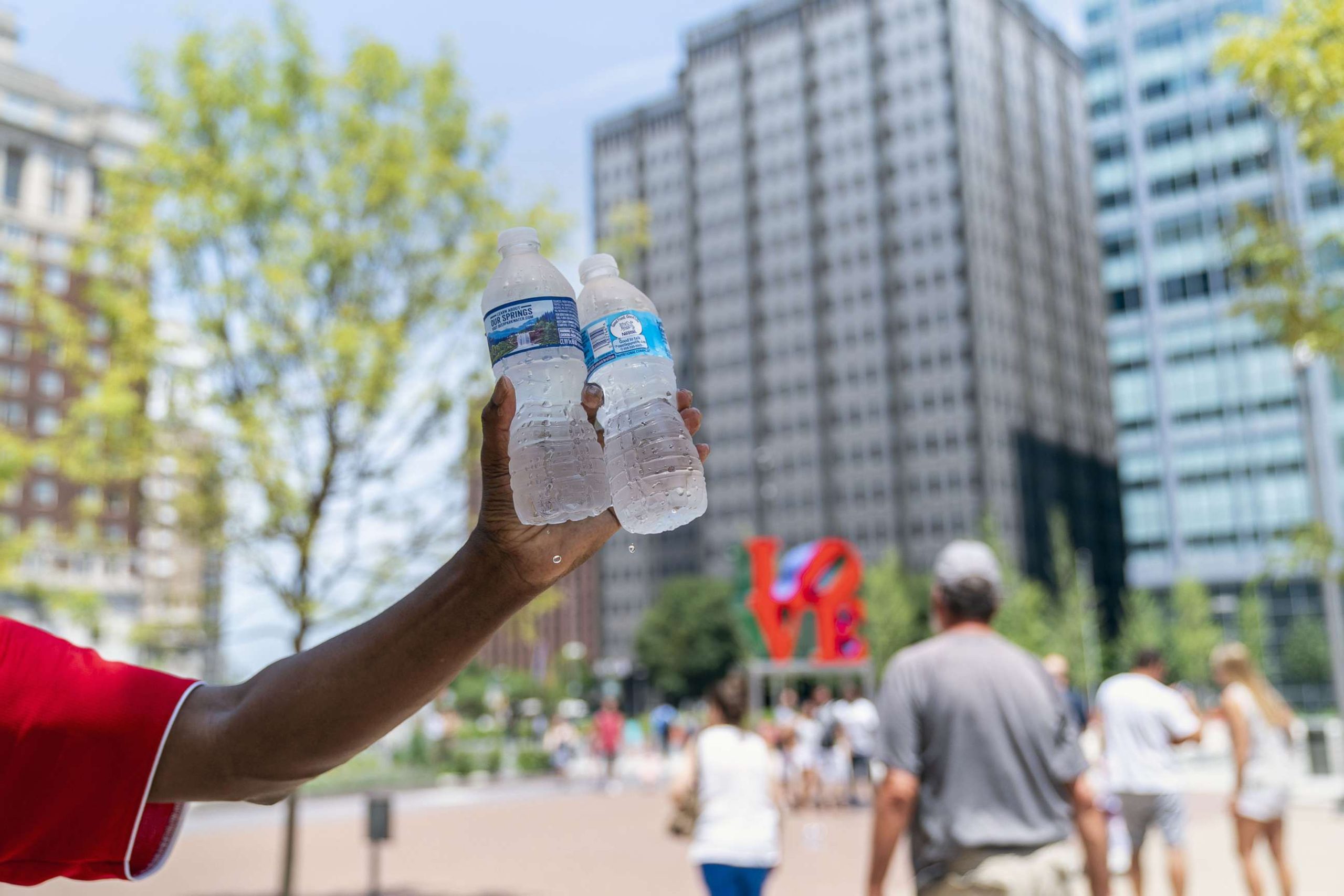Life-threatening temperatures are baking Americans across the country, from the Pacific Northwest to the Southwest and the Northeast to the Southeast.
On Tuesday, temperatures are forecast to skyrocket to a scorching 118 degrees in Las Vegas; 114 degrees in Phoenix; 104 in Portland, Oregon; 105 in Washington, D.C.; 107 in Nashville, Tennessee; 105 in Miami; and 97 in New York City.
Doctors recommend taking excessive heat warnings seriously. There are hundreds of deaths each year in the U.S. due to excessive heat, according to CDC WONDER, an online database, and scientists caution that the actual number of heat-related deaths is likely higher.
Here are tips to stay safe from the heat from the Centers for Disease Control and Prevention:
Wear sunscreen
Take precautions to prevent sunburn, which can make you dehydrated and affect your ability to cool down.
Use sunscreen that’s SPF 15 or higher 30 minutes before going outside. Sunscreens that say “broad spectrum” or “UVA/UVB protection” are best.
Stay hydrated
Drink extra fluids, and don’t wait until you’re thirsty.
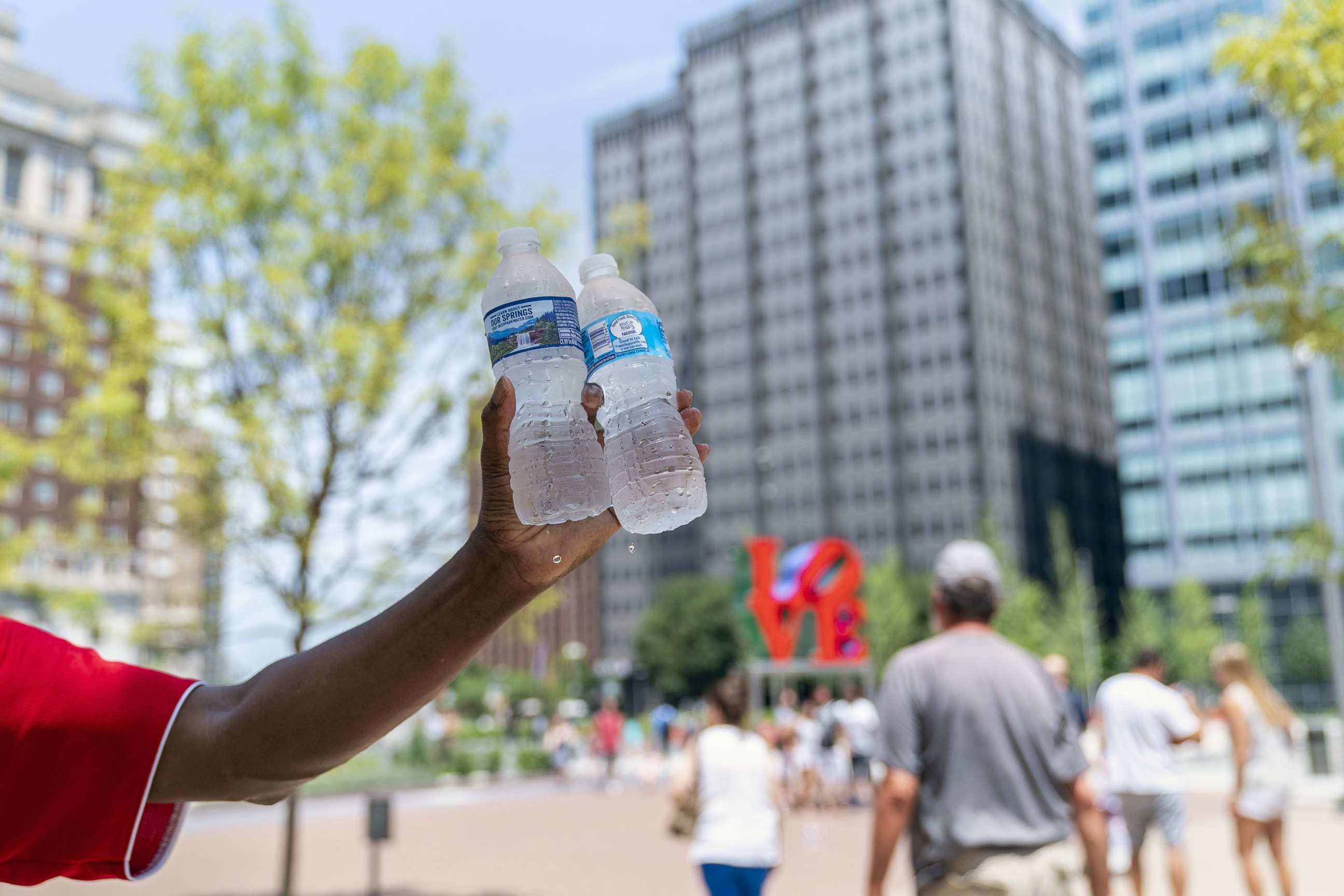
A man sells bottles of water in sweltering heat on July 1, 2018 in Philadelphia.
Jessica Kourkounis/Getty Images
Avoid very sugary drinks and alcohol, which can cause your body to lose more fluid, and be wary of extra-cold drinks that may cause stomach cramps.
Avoiding hot and heavy meals also can reduce your body’s overall temperature.
Limit time outside
Cut down on exercise during heat waves and rest often and in shady areas.
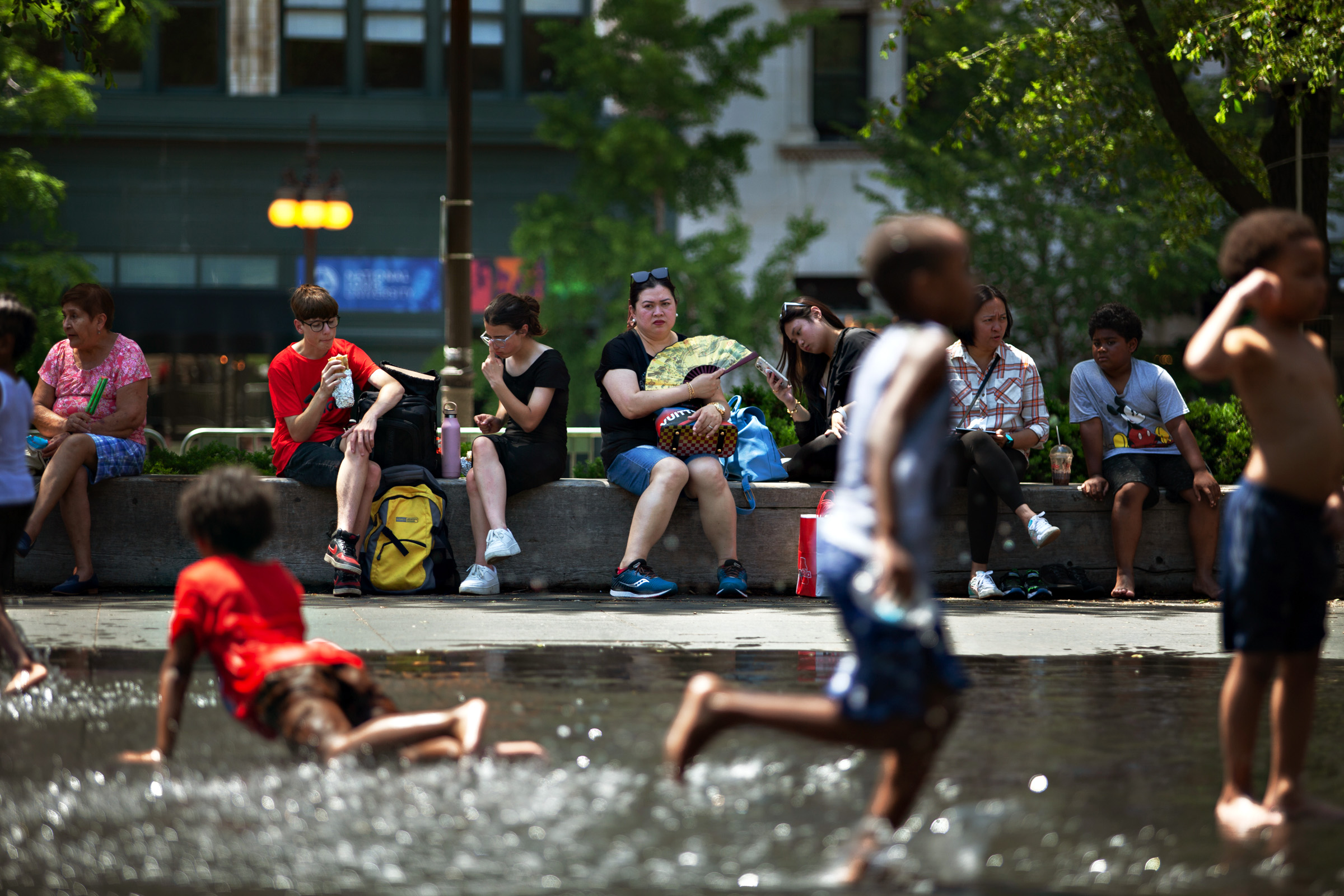
People sit in the shade as children play with water in downtown Chicago on June 14, 2022.
Vincent D. Johnson/Xinhua via Newscom
Try to limit your time outside to when it is cooler, like in the early morning and evening.
Check the car
Never leave children in a parked car — even if windows are cracked open.
Monitor high-risk loved ones
Anyone can suffer from heat-related illness at any time, but these people are at greater risk:
— Babies and young children
— Overweight people
— Those 65 years old or older
— People who overexert during work or exercise
— Those who suffer from heart disease or high blood pressure and those who take certain medications, including for depression, insomnia or poor circulation
Watch for signs of illness
Symptoms of heat stroke include:
— Body temperature of 103 degrees or higher
— Hot, red, dry or damp skin
— Fast, strong pulse
— Headache
— Dizziness
— Nausea
— Confusion
— Passing out
— No longer sweating
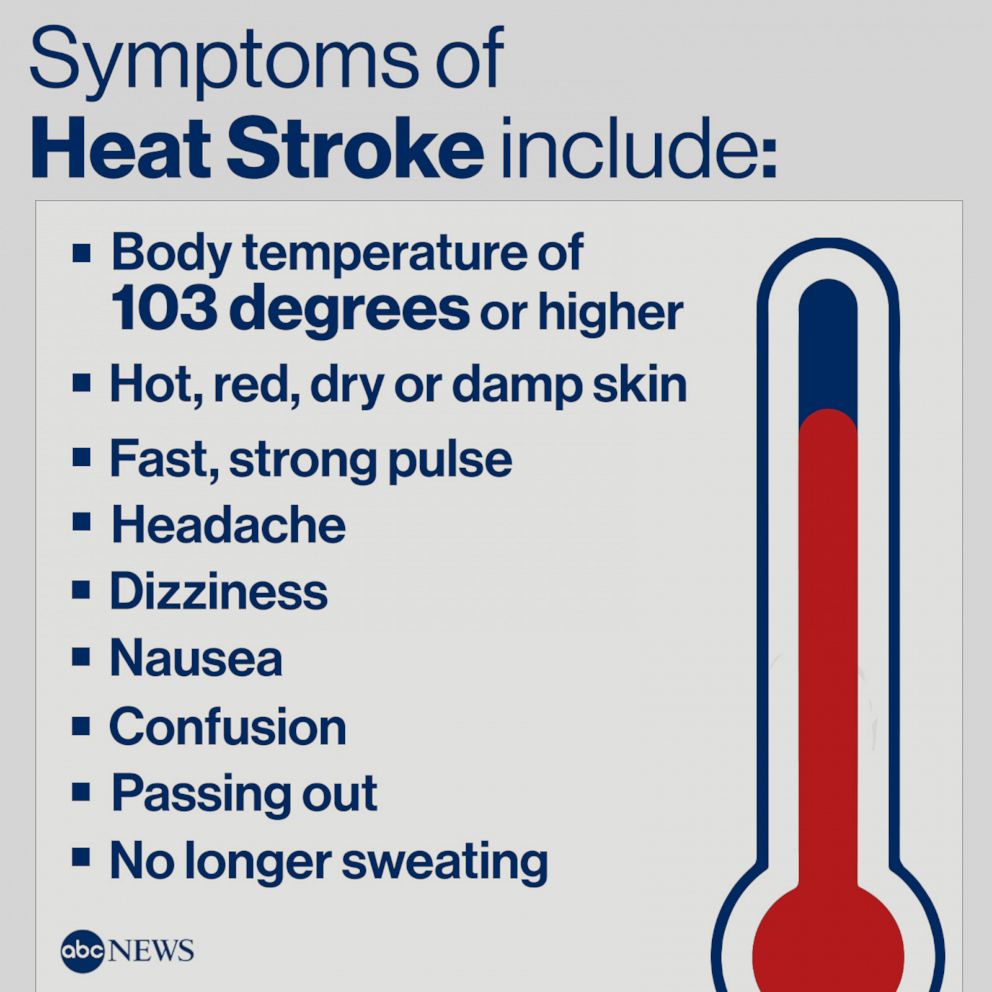
Symptoms of Heat Stroke
ABC News Photo Illustration
Symptoms of heat exhaustion include:
— Heavy sweating
— Cold, pale, clammy skin
— Fast, weak pulse
— Nausea or vomiting
— Muscle cramps
— Feeling tired or weak
— Headache
— Passing out
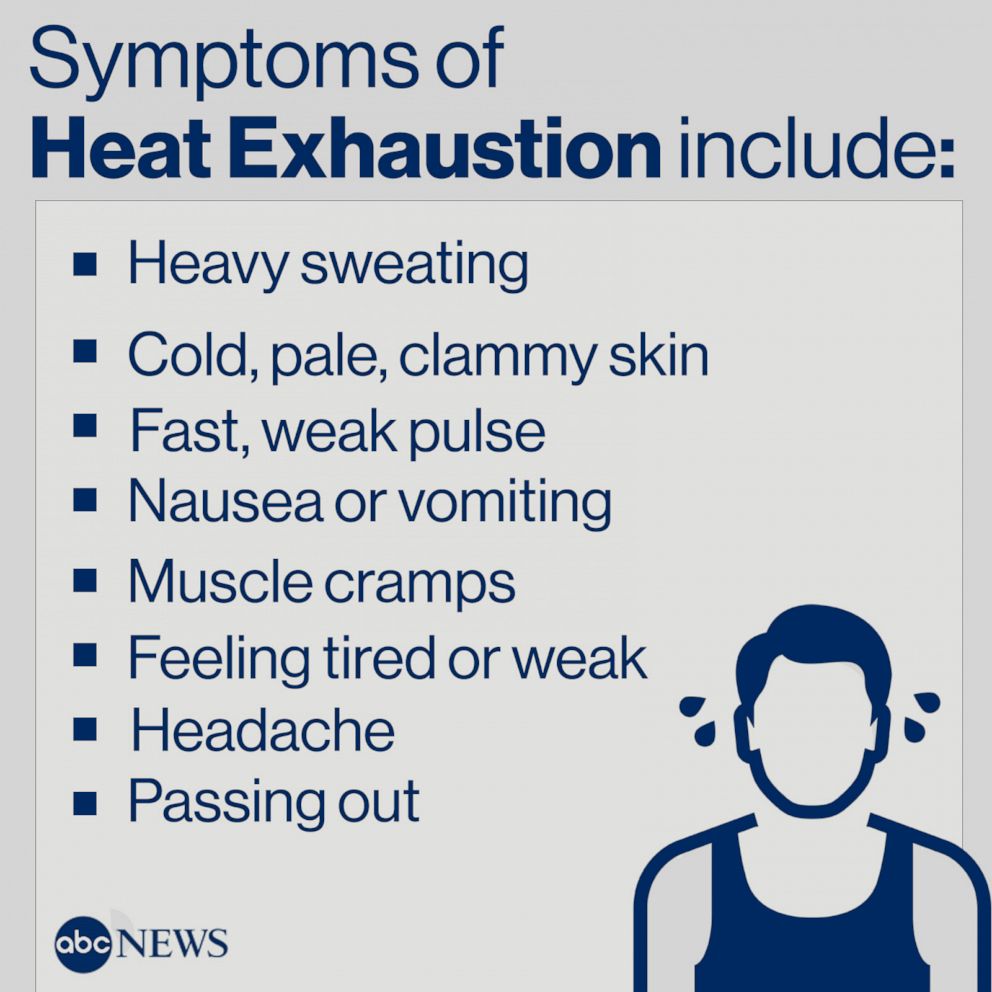
Symptoms of Heat Exhaustion
ABC News
If someone shows symptoms of heat stroke or heat exhaustion, call 911, move them somewhere cooler and use towels to cool down their body.
Don’t forget about your furry friends!
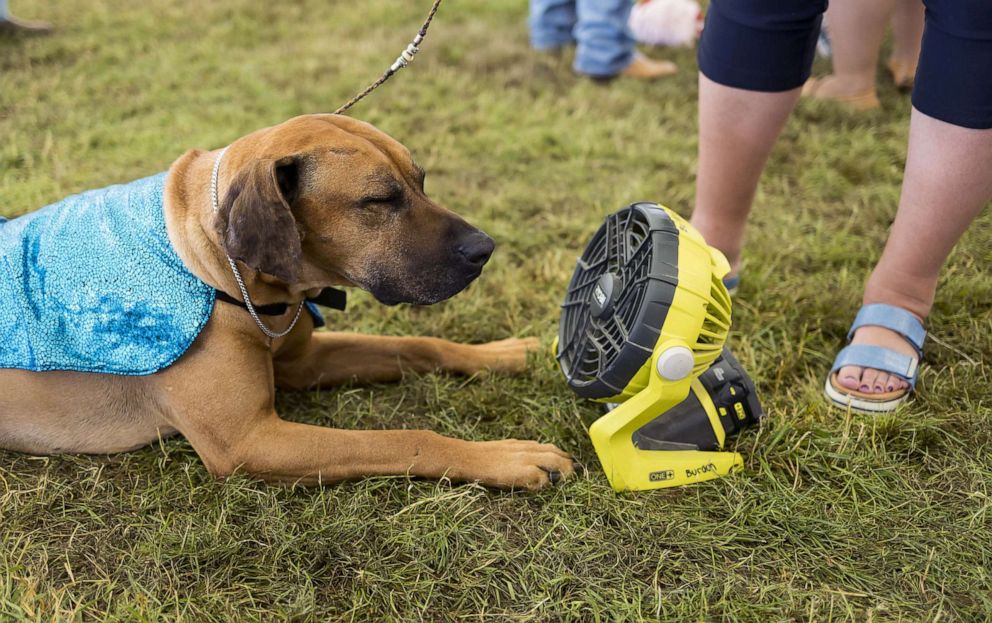
A Rhodesian Ridgeback named Aiden cools off with a fan before competeing at the 146th annual Westminster Kennel Club, in Tarrytown, N.Y., June 20, 2022.
Justin Lane/EPA via Shutterstock
Here are some tips from the American Society for the Prevention of Cruelty to Animals for how to keep your pets safe in the heat: provide plenty of fresh water so they don’t get dehydrated; don’t over-exercise pets; never leave pets alone in a parked car; and watch for symptoms of overheating, which include excessive panting, difficulty breathing, increased heart and respiratory rate and drooling.
Animals with flat faces, like pugs, can’t pant as well and are more at risk of heat stroke. These pets, as well as older and overweight pets, should be kept inside as much as possible.
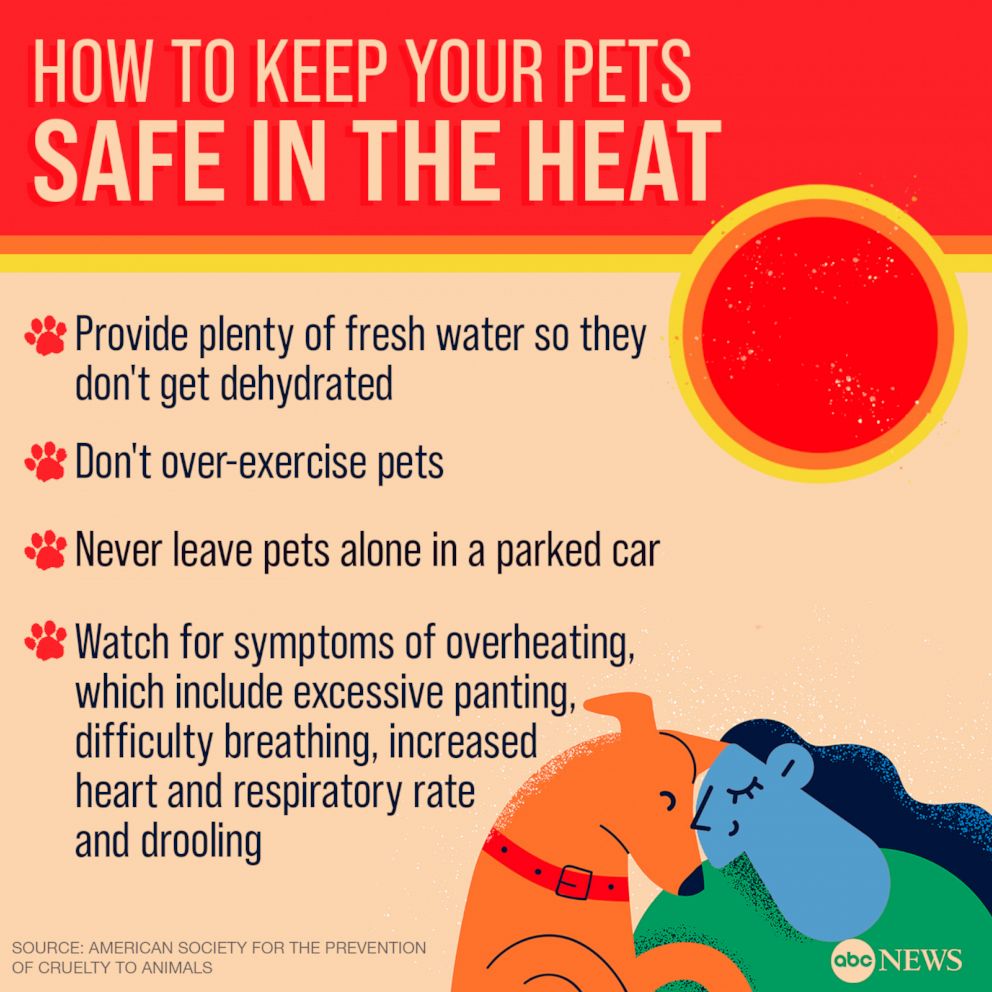
Tips to keep your pets safe in the heat.
ABC News Photo Illustration
As temperatures continue to rise during the summer months, it is important to understand the difference between heat stroke and heat exhaustion in order to stay safe in extreme heat. Both conditions are serious and can be life-threatening if not treated promptly.
Heat exhaustion is a milder form of heat-related illness that can occur when the body is unable to cool itself properly. Symptoms of heat exhaustion include heavy sweating, weakness, dizziness, nausea, headache, and muscle cramps. If you suspect someone is experiencing heat exhaustion, it is important to move them to a cooler place, have them drink plenty of water, and apply cool compresses to help lower their body temperature.
On the other hand, heat stroke is a more severe form of heat-related illness that occurs when the body’s temperature regulation system fails. Symptoms of heat stroke include a high body temperature (above 103 degrees Fahrenheit), hot and dry skin, rapid pulse, confusion, and loss of consciousness. Heat stroke is a medical emergency and requires immediate medical attention. If you suspect someone is experiencing heat stroke, call 911 and move them to a cooler place while waiting for help to arrive.
To prevent heat-related illnesses, it is important to take precautions when temperatures are high. Here are some tips to stay safe in extreme heat:
1. Stay hydrated: Drink plenty of water throughout the day, even if you do not feel thirsty. Avoid drinks with caffeine or alcohol, as they can dehydrate you.
2. Stay cool: Stay in air-conditioned buildings as much as possible. If you do not have air conditioning, spend time in a cool place like a library or shopping mall.
3. Dress appropriately: Wear lightweight, loose-fitting clothing and a hat to protect yourself from the sun.
4. Limit outdoor activities: Try to avoid strenuous activities during the hottest part of the day (usually between 10 a.m. and 4 p.m.).
5. Check on vulnerable individuals: Keep an eye on children, elderly individuals, and those with chronic medical conditions who may be more susceptible to heat-related illnesses.
By understanding the difference between heat stroke and heat exhaustion and taking precautions to stay safe in extreme heat, you can enjoy the summer months without putting your health at risk. Remember to listen to your body and seek medical attention if you or someone else shows signs of heat-related illness.
